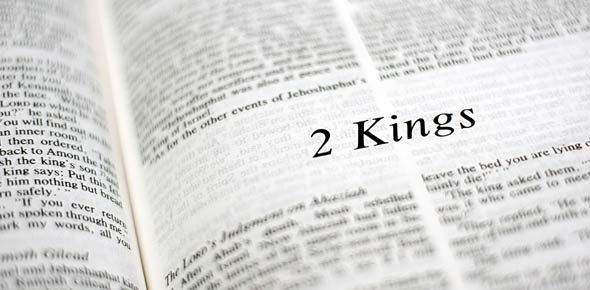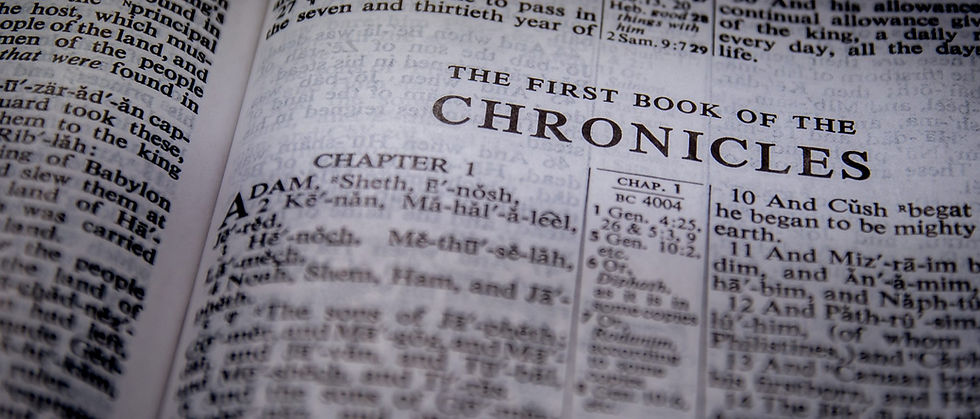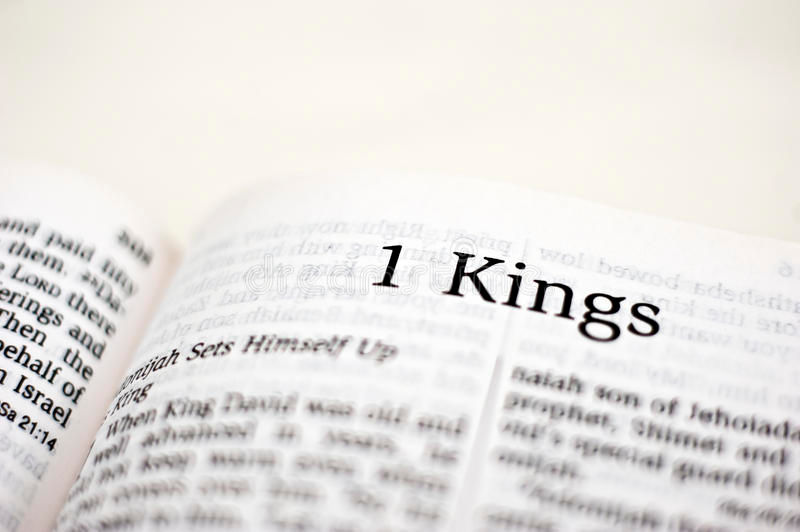2 Kings Summary: Prophets, Power Shifts, and the Path to Exile
- Bible Believing Christian

- Aug 7, 2025
- 5 min read
Updated: Aug 8, 2025

2 Kings Summary: Prophets, Power Shifts, and the Path to Exile
Intro for Beginners
If 1 Kings was the slow unraveling of a once-great kingdom, 2 Kings is the final thread snapping. We pick up the story with Elijah being taken to heaven and follow the transition to his successor, Elisha. From there, kings rise and fall—mostly fall—as both the northern kingdom (Israel) and southern kingdom (Judah) plunge deeper into idolatry, violence, and rebellion. This book doesn’t end well. It’s a sobering account of what happens when a nation rejects God entirely. But even in judgment, God still sends prophets. He still gives warnings. He still extends grace.
Etymology & Background
Hebrew Title: מְלָכִים ב (Melakhim Bet) — “Kings 2”
Greek (LXX): Βασιλειῶν Δʹ (Basileiōn Delta) — “4 Kingdoms” in the Septuagint collection.
Originally part of the same scroll as 1 Kings, 2 Kings continues the history of Israel and Judah. It covers roughly 300 years, from the ministry of Elisha to the destruction of Jerusalem in 586 BC.
Chapter Movements & Key Moments
Chapters 1–2: Elijah’s Departure and Elisha’s Anointing
Elijah is taken to heaven in a whirlwind and chariots of fire (2 Kings 2:11).
Elisha receives a double portion of Elijah’s spirit and immediately begins performing miracles.
“Elisha picked up Elijah’s cloak… and struck the water with it. The river divided, and Elisha went across.” (2 Kings 2:13–14, NLT)
Chapters 3–8: Elisha’s Ministry
Elisha’s miracles echo and even exceed Elijah’s:
He purifies poisoned water.
Multiplies oil for a widow.
Raises a boy from the dead.
Heals Naaman, a Syrian general, of leprosy.
Causes an axe head to float.
Oddity: In 2 Kings 2:23–25, 42 young men are mauled by bears after mocking Elisha’s bald head. It’s shocking—but not random. They weren’t children playing—they were mocking a prophet, rejecting God’s voice in a time of national apostasy.
Chapters 9–10: Jehu’s Bloody Revolt
Jehu is anointed king by a prophet and goes on a violent purge:
Kills King Joram (Israel) and King Ahaziah (Judah)
Has Queen Jezebel thrown out a window
Destroys Ahab’s family and wipes out Baal worship in Israel
“Then Jehu ordered, ‘Throw her down!’ So they threw her out the window…” (2 Kings 9:33, NLT)
Despite his zeal, Jehu still does not fully follow the Lord (2 Kings 10:31).
Chapters 11–17: Israel's Last Days
Queen Athaliah usurps the throne in Judah and kills her grandsons—but Joash survives, hidden in the Temple for 6 years.
Israel sees rapid turnover of evil kings and increasing idolatry.
God sends prophets—Hosea, Amos, Jonah, Isaiah—but they are largely ignored.
Finally, in 722 BC, Assyria invades and destroys the northern kingdom of Israel.
“This disaster came upon the people of Israel because they worshiped other gods.” (2 Kings 17:7, NLT)
The Assyrians deport the Israelites and repopulate the land with foreigners—this is the origin of the Samaritans of Jesus’ day.
Chapters 18–20: Hezekiah’s Revival
In Judah, Hezekiah is a bright spot:
He tears down pagan shrines.
Trusts God when Sennacherib of Assyria invades.
Prays in the Temple and receives miraculous deliverance—an angel strikes down 185,000 Assyrian soldiers.
“That night the angel of the Lord went out to the Assyrian camp and killed 185,000 soldiers.” (2 Kings 19:35, NLT)
Hezekiah also receives 15 more years of life after praying and turning to the wall in desperation (2 Kings 20:1–6).
Chapters 21–23: The Rise and Fall of Josiah
After Hezekiah’s good reign, Manasseh becomes one of the most wicked kings in Judah’s history.
His grandson, Josiah, leads a reform, discovers the Book of the Law, and tears down altars.
“When the king heard what was written… he tore his clothes in despair.” (2 Kings 22:11, NLT)
But it’s too late. Judgment is already in motion.
Chapters 24–25: The Fall of Jerusalem
Babylon rises. King Nebuchadnezzar invades repeatedly. Eventually, King Zedekiah rebels, and in 586 BC, Jerusalem is destroyed.
The Temple is burned.
The walls are torn down.
The people are exiled.
The line of David appears broken.
“So Judah was exiled from its land.” (2 Kings 25:21, NLT)
Conclusion & Bridge to Jesus
The book ends in exile. The promised land is lost. The temple is destroyed. The kings have failed. And the people are scattered. But the last paragraph offers a sliver of hope: Jehoiachin, a descendant of David, is released from prison and honored in Babylon (2 Kings 25:27–30). The line isn’t dead. The promise isn’t broken. The King is still coming. This isn’t just a fall—it’s a setup for a Messianic restoration. A better king is on the horizon, and His throne will never be torn down.
How 2 Kings Points to Jesus (with New Testament Fulfillments)
1. Elisha’s Miracles → Jesus’ Power Over Life and Death
Elisha multiplies oil, raises the dead, heals leprosy—Jesus does all this and more.
“Go back to John and tell him… the blind see, the lame walk… the dead are raised…” (Matthew 11:4–5, NLT)
Jesus is the greater Prophet who doesn't just heal the body—He saves the soul.
2. Josiah’s Reforms → Jesus Fulfills the Law
Josiah rediscovers the Law and weeps. Jesus fulfills it completely.
“Don’t misunderstand why I have come. I did not come to abolish the law… but to accomplish their purpose.” (Matthew 5:17, NLT)
3. The Failed Kings → Jesus, the Faithful King
Where David’s descendants failed, Jesus succeeds.
“And He will reign over Israel forever; His Kingdom will never end!” (Luke 1:33, NLT)
4. The Fall of the Temple → Jesus, the New Temple
The Temple is burned, but God’s presence will now dwell in flesh—Jesus Himself.
“Destroy this temple, and in three days I will raise it up.” (John 2:19, NLT)
Application – What Should We Do With This?
1. Repent While There’s Time
God warned His people again and again before judgment came. Don’t presume on grace.
2. Don’t Confuse Delay with Denial
The exile didn’t happen overnight. But when it came, it was thorough. Sin has a shelf life—but it does expire.
3. Faithfulness Isn’t Popular, But It’s Powerful
Elijah and Elisha weren’t loved—but they were right. Don’t bow to Baal just because everyone else is.
4. Trust the Bigger Story
Even in exile, God was preserving the line of David. Even in ruin, redemption was on the way.
5. Let Jesus Be Your King Now
You don’t need a physical throne, army, or building to see God reign. Let Christ rule in your heart—before the collapse comes.


